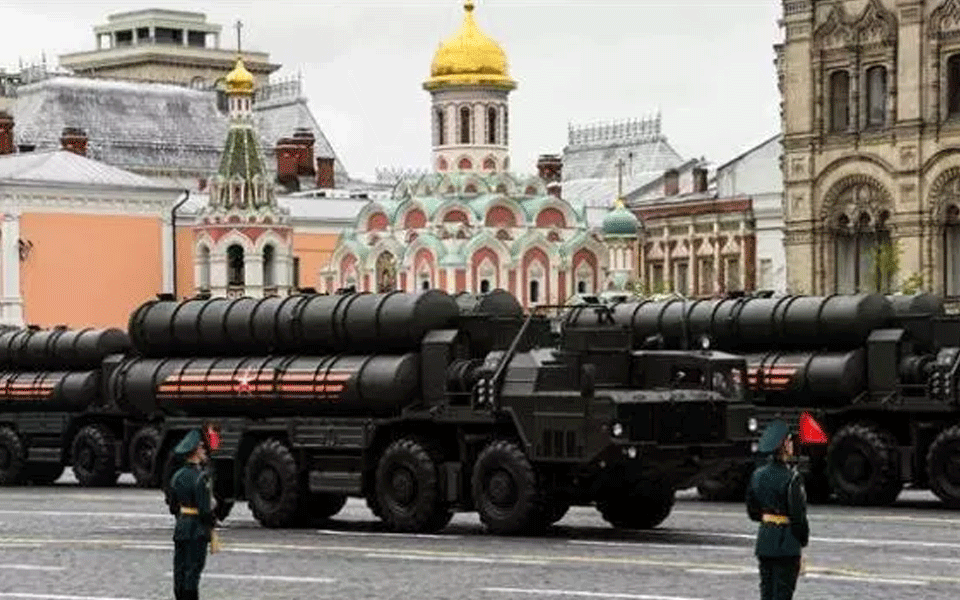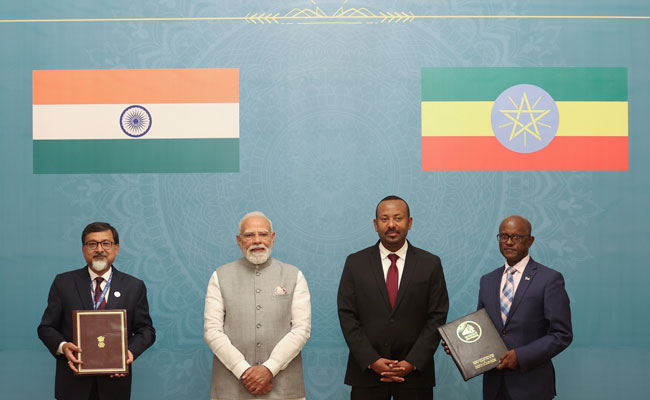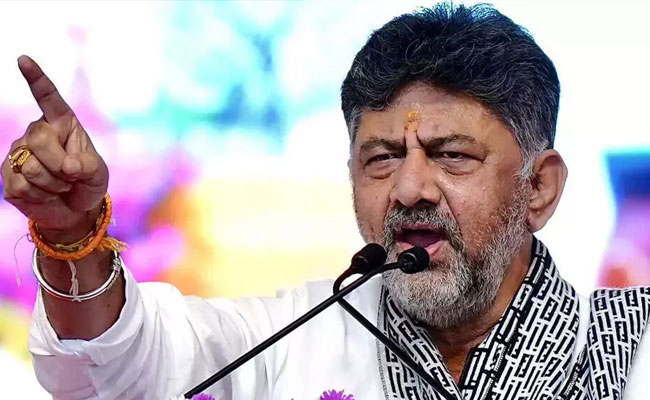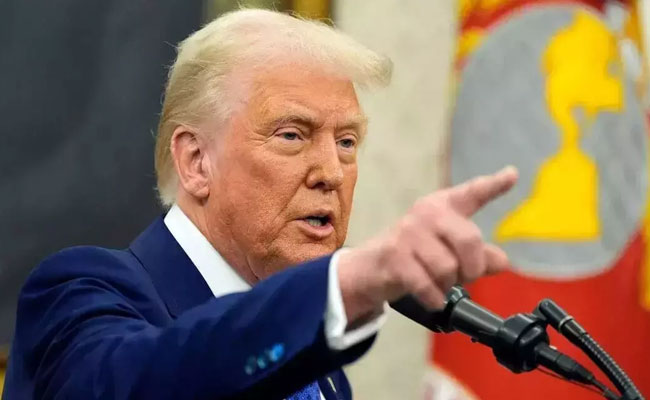New Delhi, June 5: India will go ahead with the proposed purchase of five regiments of Russian-made S-400 Triumf advanced air defense system despite US concerns that the $5.5 billion military deal could limit defence cooperation between New Delhi and Washington.
Defence Minister Nirmala Sitharaman on Tuesday said the negotiations between India and Russia to finalise the Rs 39,000-crore deal were already in the last stage and won't be hampered by the US red-flagging the deal for which the two countries signed an agreement in principle in 2016.
She said India had made it clear in all its engagements with the US that its ties with Russia were independent of external influences and relationships with other countries.
"I would like to make it clear here that in all our engagements with the United States, we have very clearly explained how India and Russia's defence cooperation is something which has been going on for a very long time. It is a time-tested relationship. And India has got quite a lot of defence assets from Russia -- assets, spares, servicing. We have a continuous relationship with Russia has been recalled."
The Defence Minister's remarks come days after a top US Congressmen, Republican Mac Thornberry, Chairman of the House Armed Services, told a group of journalists here that there was a lot of concern in both the Trump administration and the Congress regarding the S-400 missile system being acquired by any of American partners, including India.
Thornberry, who was in India last week, said if New Delhi went ahead with the purchase, it would complicate "our ability to work out interoperability" at a time when the US had issued sanctions against Russian oligarchs and companies. These include Rosoboronexport, the state-owned Russian weapons trading company.
The Congressman said the US was making sanctions against Russia "flexible" for its allies like India to allow them breathing room to continue dealing with Moscow -- but only to maintain their legacy equipment and at the same time they must wean themselves off Russian equipment.
He said a provision in the National Defense Authorization Act (NDAA), which is awaiting a Senate nod after it was passed by the House on May 24, would allow the Trump administration to suspend the sanctions under the Countering America's Adversaries Through Sanctions Act, or CAATSA, passed in August 2017 for Russia's purported interference in the 2016 presidential election process.
But Sitharaman said the US sanctions were not binding on India. "We have also mentioned (to the US) that CAATSA cannot be impacting on us, on this particular characteristic of India-Russia defence cooperation. This has been explained."
Asked about deal on the air defence system -- a possible game-changer for its ability to counter ballistic missiles and stealth aircraft like those China is developing, the Defence Minister said: "That has been for a very long time in negotiations. We have reached a final stage in the S-400 negotiations. That explains it."
Though Sitharaman didn't mention about her meeting with Thornberry but a senior Defence Ministry official told IANS that the US Congressman was "clearly told" that the "CAATSA was your law" and India won't abide by it.
The official said Thornberry also shared with the Defence Ministry CAATSA amendments granting partial waiver to countries like India.
"But the language was not acceptable and he (Thornberry) has been asked to modify it."
India's deep military and strategic ties with Russia date back to the beginning of the Cold War even as New Delhi led a movement of "non-aligned" countries that declared their tilt with neither Washington nor Moscow. However, India always leaned toward the then USSR.
India still buys over 60 per cent of its defence equipment from Russia. At present, the Indian armed forces are 70 per cent equipped with Soviet or Russian weapons.
Let the Truth be known. If you read VB and like VB, please be a VB Supporter and Help us deliver the Truth to one and all.
Addis Ababa (PTI): India and Ethiopia on Tuesday elevated their historical ties to a strategic partnership, as Prime Minister Narendra Modi held wide-ranging talks with his Ethiopian counterpart Abiy Ahmed Ali during which they discussed issues of bilateral and mutual interest.
Modi, who arrived here from Jordan on his maiden bilateral visit, was accorded a ceremonial welcome at the National Palace ahead of the bilateral talks, reflecting the vibrant India-Ethiopia relations rooted in shared history and a promising future.
"We are elevating India and Ethiopia relations to a strategic partnership. This step will provide new energy, new momentum and new depth to our ties," Prime Minister Modi said during the delegation-level talks.
He thanked PM Ali for his support in India's fight against terrorism. "The support of friendly countries in this struggle against terrorism holds great significance," Modi said.
"Today, we got the opportunity to deliberate on the key aspects of our cooperation, such as economy, innovation, technology, defence, health, capacity-building and multilateral cooperation. I am pleased that today, we have decided to double the student scholarship for Ethiopia in India," Modi said.
Modi said that India and Ethiopia have shared contact, dialogue, and exchange for thousands of years. The two countries, which are rich in languages and traditions, are symbols of unity in diversity, he added.
"Both countries are democratic powers committed to peace and the welfare of humanity. We are co-travellers and partners of the Global South. On international platforms, we have stood shoulder-to-shoulder," he said.
The two sides signed eight MoUs/agreements, including upgrading ties to 'Strategic Partnership', customs cooperation, establishing data center at the Ethiopian Foreign Ministry, UN Peacekeeping training cooperation, debt restructuring under G20, more ICCR scholarships and AI short courses for Ethiopians, and support for maternal and neonatal healthcare.
Modi said the African Union's headquarters in Ethiopia makes the country a meeting point of African diplomacy. "Inspired by the common vision of an inclusive world, in 2023, India ensured that the African Union became a G20 member," he said.
In 2023, during India’s G20 Presidency, the African Union was admitted as a permanent member of the G20.
Modi said that though this is his first visit, he felt a deep sense of belonging and warmth, reflecting the thousands of years of connection between the two countries.
On his part, Prime Minister Ali said the two countries share over thousands of years of connection through trade, diplomacy, education, culture and even in our food and traditions. "These ties continue to shape a deep friendship, collaboration and mutual respect between our people," he said.
"We also appreciate your consistent message that Africa's priorities must lead the partnership. These kinds of dignified, respectful messages for Africa are very important. Mr Prime Minister, keep pushing. That is the type of message we are expecting from all our trusted friends," Ali said.
He said this aligned fully with Ethiopia's development plan - African-owned, African-led, and African-defined.
"Today, we meet with a clear focus to shape a modern partnership, grounded in sovereignty, self-reliance and practical cooperation. Our cooperation is rooted in equality and South-South solidarity," he said.
"Our economy is performing strongly. Last year, we grew 9.2% and this year we are expecting 10.3% GDP growth. Besides GDP growth, our FDI inflow is also rising big time. India is the leading source for our FDI," he said.
"We have more than 615 Indian companies which are investing in Ethiopia. This all gives our cooperation a strong foundation of trust. I think our decision today that we elevate our historic relationship to a strategic relationship is the right decision," he added.
Ethiopia also conferred its highest award - The Great Honour Nishan of Ethiopia - on PM Modi. He is the first global head of state to receive this award.
Prime Minister Modi also went to the Friendship Park and Friendship Square in Addis Ababa with PM Ali.
In a warm and special gesture, PM Modi was earlier received by his Ethiopian counterpart at the airport and accorded a warm and colourful welcome.
"Ethiopia is a nation with great history and vibrant culture," Modi said.
PM Ali informed his Indian counterpart about the varieties of Ethiopian coffee during informal talks.
"At Addis Ababa airport, took part in a traditional Coffee Ceremony with Prime Minister Abiy Ahmed Ali. The ceremony beautifully highlights Ethiopia’s rich heritage," Modi said.
In a unique gesture, the Ethiopian Prime Minister drove Modi to the hotel.
On the way, he took a special initiative of taking PM Modi to the Science Museum and Friendship Park, which was not in the itinerary.
"Gratitude to Prime Minister Abiy Ahmed Ali for showing me glimpses of Ethiopian history and culture at the National Palace Museum in Addis Ababa. It was a powerful reminder of Ethiopia’s rich traditions," Modi said in a post on X.
The Nobel Peace Prize-winning Ethiopian PM’s special gestures show remarkable respect for Modi, sources said.
"Thank you Ethiopia for a welcome that was unforgettable. The Indian community showed remarkable warmth and affection. India-Ethiopia friendship is going to get even more robust in the times to come," Modi said.
When Modi arrived at the hotel, he was warmly welcomed by the members of the Indian community. Local artists performed dances. Some of them danced on the theme of the popular Hindi song 'Aisa Des Hai Mera' to welcome him.
On Wednesday, Modi will address the Joint Session of Parliament and share his thoughts on India's journey as the "Mother of Democracy" and the value that the India-Ethiopia partnership can bring to the Global South.
PM Modi arrived in Ethiopia from Jordan, where he held a one-on-one meeting with King Abdullah II at the Husseiniya Palace on Monday before the delegation-level talks.
India and Jordan also inked MoUs in the fields of culture, renewable energy, water management, digital public infrastructure and twinning arrangement between Petra and Ellora, aimed at giving a major boost to bilateral ties and friendship.
From Ethiopia, Modi will visit Oman on the final leg of this three-nation tour.





